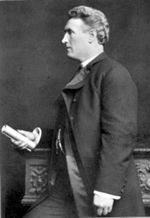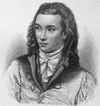Exposing the second beasts work on earth
Holocaust Center Receives Dachau Trial Collection
The Library Archive recently received an archival collection of great historical significance. Andy Woodiwiss, a grandson of Major Warren Lambert, a Dachau Trial judge in the U.S. Army War Crimes Tribunal, donated his grandfather’s footlocker containing World War II memorabilia to our
Center. Major Lambert accumulated many im-
portant artifacts during
his stay in Germany,
many of which shed
light on post-war life
in Germany and the behind-the-scenes
proceedings of the inter-
national military trials.
Major Lambert, a native of Lewiston, Michigan, was a career soldier and not a lawyer by profession. He was appointed to this difficult position because of his reputation as
a compassionate human being and steadfast seeker of justice. Among
the materials he brought home were hundreds of photographs, albums, currency, and a tapestry taken from Hitler’s home.
To understand the staggering responsibility of doling out justice in the face of horrific and unprecedented crimes, one must have a little back- ground. First, there were a series of Dachau Trials. From November 15 through December 13, 1945, the U.S. Army conducted proceedings against 40 individuals associated with the administration and operation of the Dachau Concentration Camp and its subcamps. On December 14, 1945, the court sentenced 36 of the men to death by hanging.
In the aftermath of WWII, Dachau was used as a prison for tens of thou- sands of captured German prisoners who were under investigation for war crimes. Included in this population were hundreds of high-ranking SS and SD officers who had to be positively identified and their individual crimes clearly stated. Some of these were camp commandants of such infamous camps as Dora, Nordhausen, Mauthausen, Gusen and Buchenwald. Word was passed from defend-ant to defendant that under American law, the burden of proof lay on the prosecution and that the defend- ants could save themselves by denying everything and claiming ignorance. When confronted with eyewitness testimony and evidence of the atrocities, the defendants blamed their already dead co-workers.
The collection includes hundreds of photographs depicting life in post-war Germany. Two of the album covers in the collection were beautifully painted by a Buchenwald survivor, Heribert Froboes. Inside the albums are pho- tographs of the trials and some of the evidence presented by the prosecution. Mr. Froboes gave a graphic account of his own experiences in a 43 page trans- lated document. He had been digging trenches at Buchenwald and was saved when the SS found out he could paint. His companions were executed.
During their stay in Bavaria, Major Lambert and his wife Hazel did every- thing in their power to provide hu- manitarian aid to the German citizens and displaced persons of this war-torn area. The general popu- lation was not allowed to own guns, so the Lamberts went hunting and fishing to bring back food for orphaned children and others who eagerly awaited their food supply.
The Lambert Holocaust Preservation Fund has been established with Samuel Gun, a son of Holocaust survivors, as executive director and driving force to publicize Judge Lambert’s good deeds. Judge Lambert’s legacy as a humanitarian and righteous person is being memorialized in a book, film and traveling exhibit. The HMC is honored to be the reposi- tory for such historically important materials.
Andy Woodiwiss & executive Director stephen m. Goldman
Among the many items Major Lambert Brought home is a small
loose-leaf where he
took notes during the
court proceedings, sometimes adding sharp comments, including ‘shooting festivals,’ ‘hangings for pleasure,’ ‘can’t remember how many times I beat or kicked (prisoners).’ The word ‘LIAR’ appears in capital letters a number of times as a personal comment.
Among the defendants were five Nazi scientists who escaped justice by ‘disappearing’ mid-trial. They were given special permission to come to the U.S. because of their scientific knowl- edge. Major Lambert vehemently opposed the special treatment given them, to no avail.






